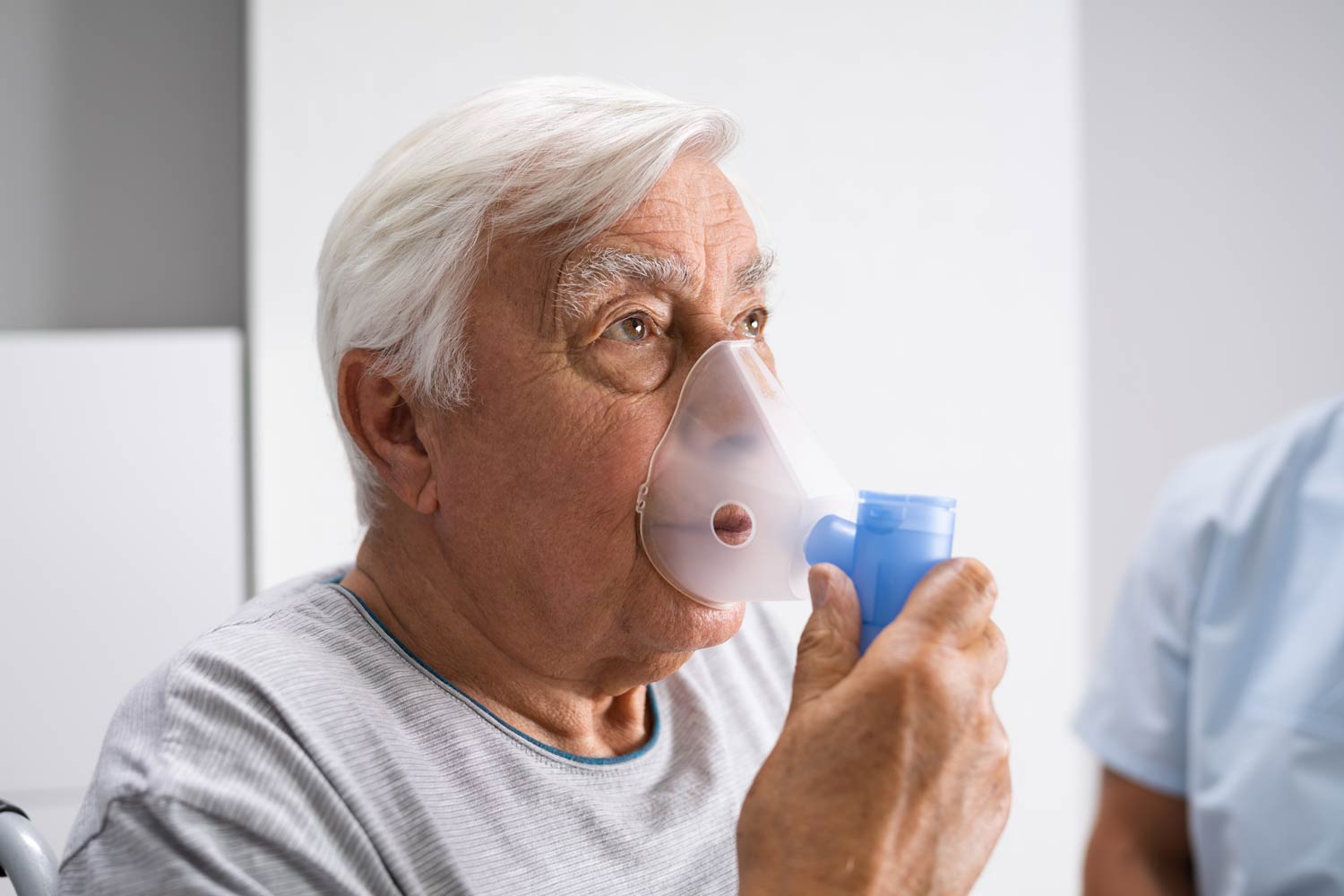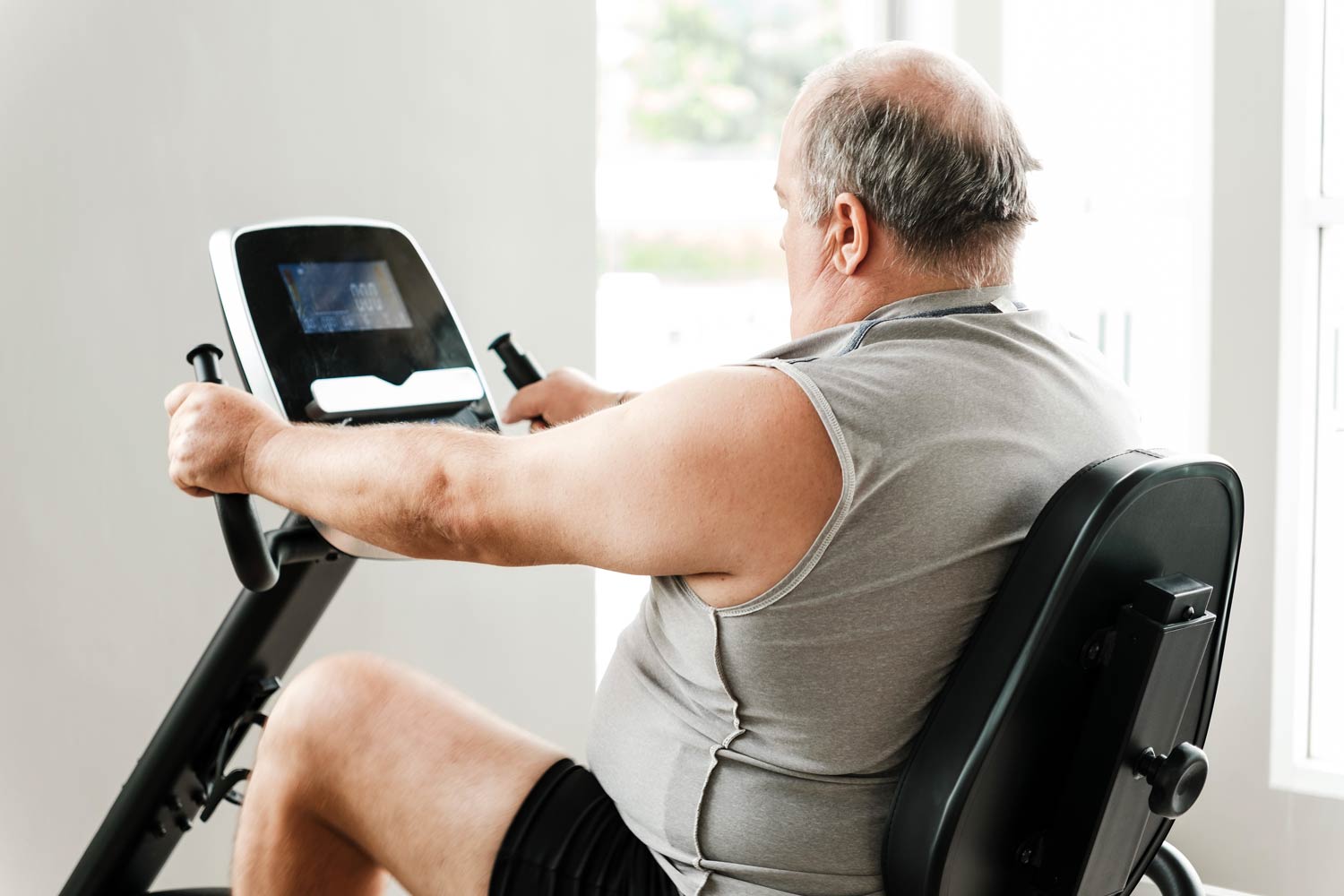Pulmonary Rehabilitation
Pulmonary Rehabilitation is a valuable tool for the treatment of individuals living with chronic lung conditions. The program can dramatically improve quality of life, helping patients breathe easier, become stronger, and increase their independence.

If you have a chronic lung condition that makes it hard to breathe and limits your everyday activities, pulmonary rehabilitation can be a game-changer. Our comprehensive program combines exercise training, education, and support tailored to your needs. It's particularly beneficial for individuals with:
- COPD (Chronic Obstructive Pulmonary Disease): The most common reason for referral to pulmonary rehab, COPD encompasses many diagnoses including emphysema and chronic bronchitis.
- Post COVID-19: Pulmonary rehab can help with respiratory difficulties lasting 4 weeks or more after a Covid infection.
- Asthma: While primarily managed with medication, pulmonary rehab can help asthmatics improve lung function and exercise tolerance.
- Interstitial lung disease: Characterized by lung scarring, these conditions make breathing difficult.
- Pulmonary fibrosis: This lung scarring condition can benefit from exercise and education to manage symptoms and slow progression.
- Post-surgical recovery: Following lung surgery, pulmonary rehab can help regain strength and function.
What happens in the program?
Program participants will meet twice a week for approximately 1 hour with a goal of 12-18 weeks (24-36 sessions). Pulmonary Rehab is covered by Medicare, Medicaid, BCBS, and other insurance companies. There is a lifetime cap of 72 sessions for Medicare patients. The program includes:
- Exercise training: Tailored exercises to improve your cardiovascular fitness, muscle strength, and flexibility. These may include warm up exercises, treadmill walking, recumbent stepper, and resistance training.
- Education: Learn about your lung condition, breathing techniques, medication management, and strategies for coping with symptoms.
- Nutritional counseling: Understand how diet plays a role in lung health and receive guidance on healthy eating habits.
- Psychological support: Undergo evaluation of stress, depression, and anxiety levels associated with chronic lung disease and receive information on stress, anxiety, and depression management, and referral to counseling if indicated.

How does pulmonary rehab help?
- Manage your symptoms: Learn breathing techniques and strategies to control shortness of breath, cough, and mucus, as well as improve sleep quality.
- Increase your strength exercise capacity: Gradually build your strength, stamina, and cardiovascular fitness through safe and monitored exercise tailored to your specific needs.
- Improve your daily living: Discover ways to manage everyday activities with less difficulty and more confidence.
- Boost your emotional well-being: Connect with a supportive community of peers and healthcare professionals who understand your challenges.
- Reduce hospital admissions and healthcare costs: The exercises and self-management strategies you'll learn can help decrease your need for hospital care.
How to get started with Pulmonary Rehabilitation
Start your journey to better health by talking with your primary care doctor, who can provide a referral. Don’t have a primary provider yet? Choose one today and begin personalized care.
